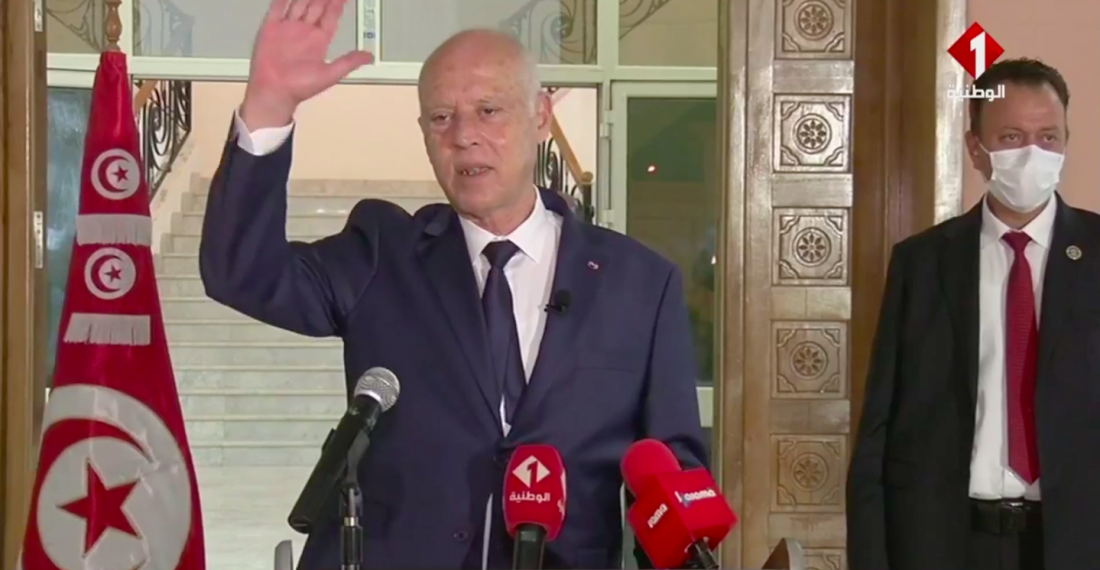A new head of government will be appointed in Tunisia, where the emergency measures decreed on 25 July will be maintained, Tunisian president Kaïs Saïed announced on Monday (20 September).
The announcement was made during a speech broadcast by national television from Sidi Bouzid, cradle of the Tunisian revolt of 2011. Saïed announced that the appointment would be made "on the basis of transitional provisions responding to the will of the people," while keeping in place the exceptional measures he had decreed on 25 July to assume full powers.
Additionally, the president used his speech to attack Tunisian politicians and MPs he accuses of corruption.
"Parliament has turned into a market where voices are sold and bought," he said. "Do you need a government that will meet your needs or thieves who will plunder countries?"
The president was repeatedly interrupted by a crowd chanting "the people want parliament to be dissolved," furthermore announced that he would pass "a new electoral law" without revealing its outlines. This suggests that new parliamentary elections to replace Parliament might not be far.
Eight weeks ago, Saïed sacked the Prime Minister and suspended the activities of Parliament.
In his Monday speech the Tunisian president also referred to an upcoming reform of the 2014 Constitution which established a hybrid system, which is neither presidential nor parliamentary. It has been a source of recurring conflicts between the two centres of power. The Islamist party Ennahda, main rival of Saïed, and who have the largest number of seats in the Parliament whose activities have been frozen, is thoroughly against changing the constitution.
Ennahda is not the only one to contest Saïed's recent moves and announcements. Tunisian representatives of civil society have denounced what they call a "clear and sharp" decline in freedoms since Saïed assumed full powers. However, the latter continues to claim that "the provisions of the Constitution in matters of rights and freedoms remain in force. I have made sure that no infringement will be made on freedoms".







